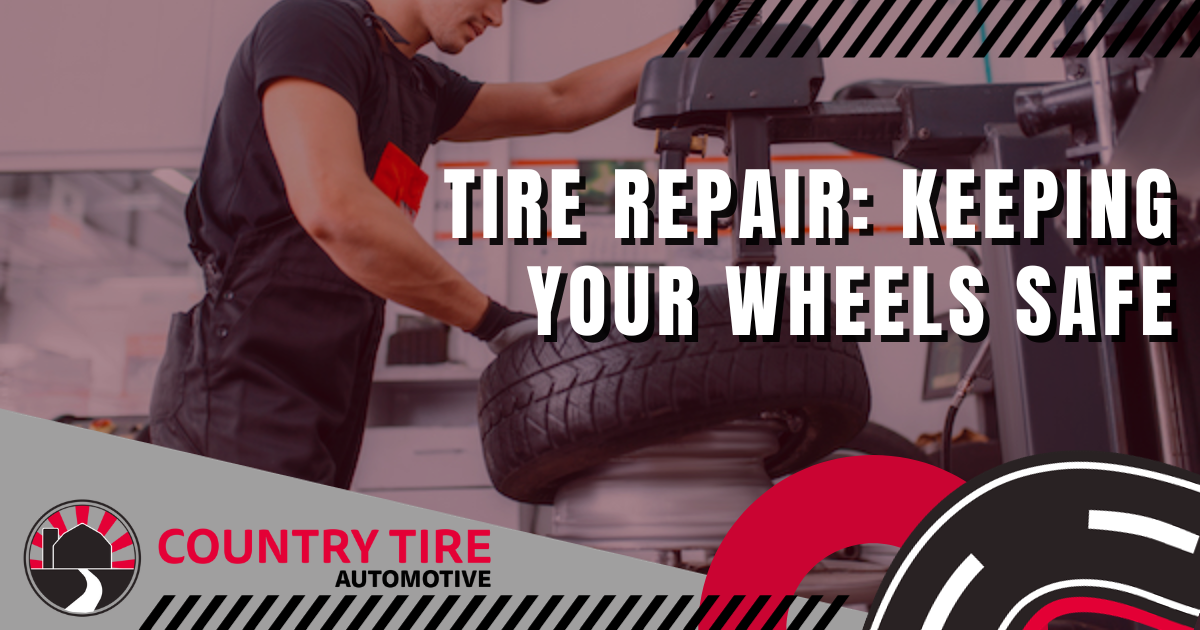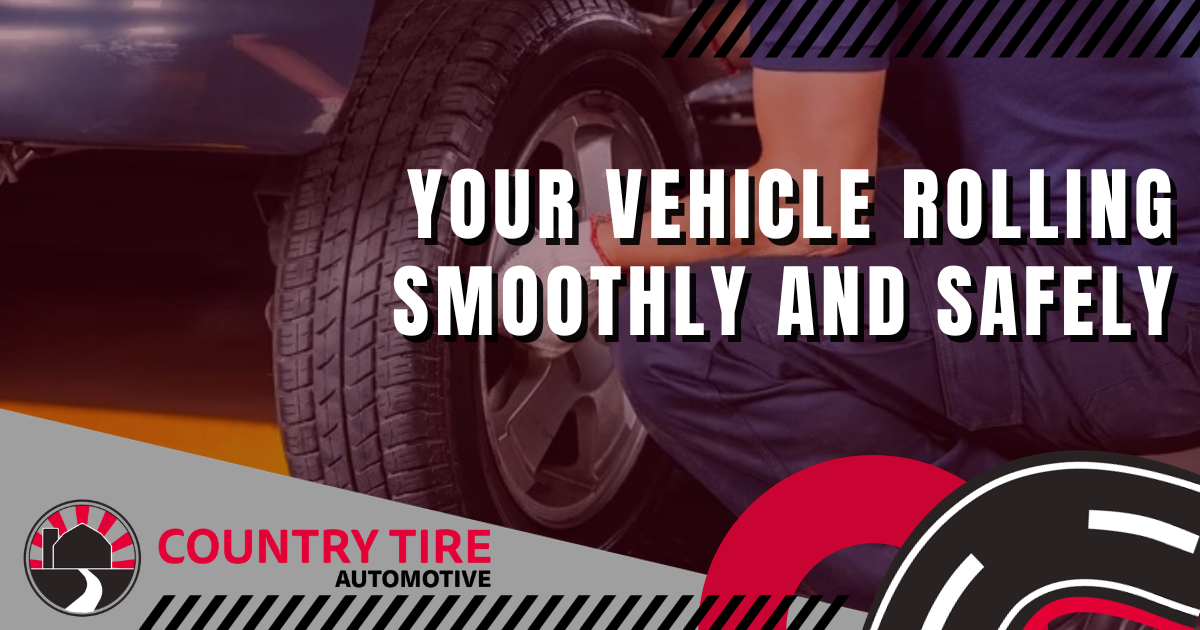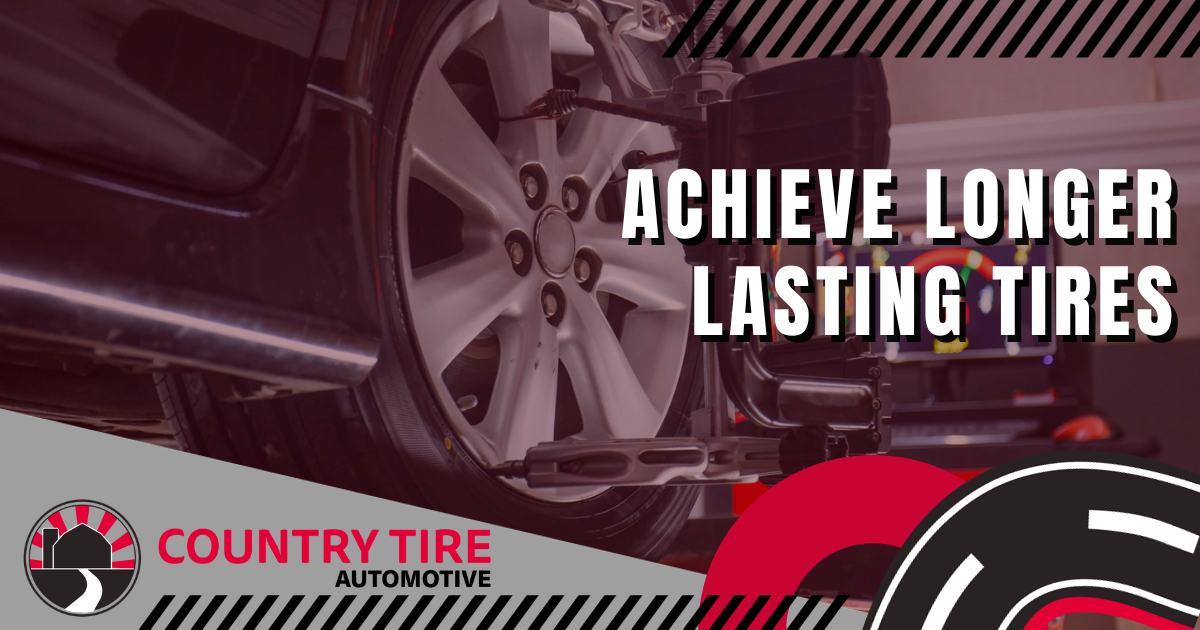Tire Rotation Cost: What to Expect in the Midwest
Tire Services
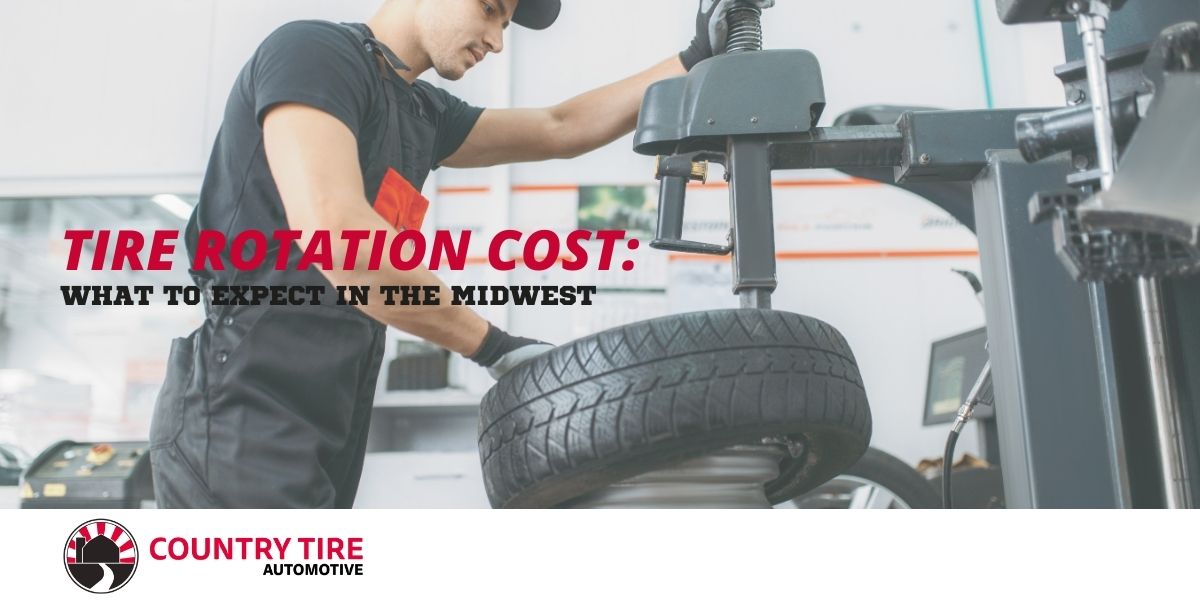
Know What a Tire Rotation Costs and Why
Ever hit the open road for a road trip and noticed your car pulling to one side? Or maybe you’ve spotted some tire wear you didn’t see before? That’s your cue to get those tires rotated.
But how much does a tire rotation cost, and how do you know if an auto shop is charging a good price or not? At Country Tire Automotive, we’re committed to transparency, and we’ll tell you what to expect when paying for your next tire rotation in the Midwest area.
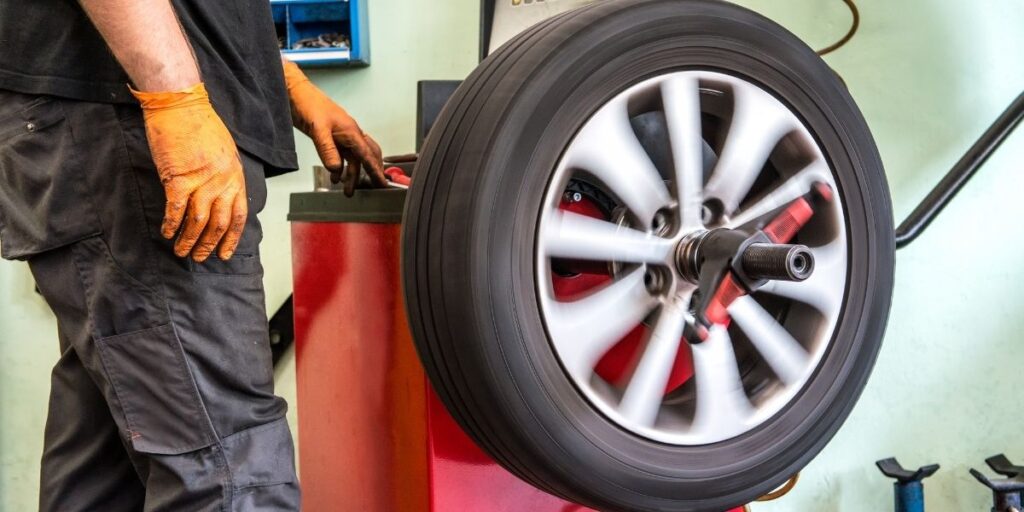
What is Tire Rotation?
Tires wear down at different rates based on where they are on a vehicle. Tire rotation is simply changing the position of your tires so they wear down evenly over time. There are a few common patterns used in tire rotation:
- Forward Cross: Front tires move straight back, rear tires move diagonally to the front.
- Rearward Cross: Front tires move diagonally to the back, rear tires move straight forward.
- X-Pattern: Front tires move diagonally to the opposite rear position and vice versa.
Rotating your tires regularly prevents premature wear on any one tire, improves handling for performance and stability, and extends tire life to get you the most miles out of your investment.
Why Tire Rotation is Important
Tire rotation may not be on your vehicle maintenance radar, like oil changes and replacing air filters, but it’s definitely something you should schedule. Not rotating your tires can cause a host of problems that only get more severe the longer you put tire rotation off. Risks include:
- Frequent tire replacement
- Reduced traction and handling
- Poor gas mileage
- An uncomfortable ride
- Damage to suspension, steering, and braking systems
- Dangerous blowouts

Factors Affecting Tire Rotation Cost
How much does it cost to rotate tires? As of 2024, the national average cost for a tire rotation is between $60-$72. For a tire rotation and balance, the range is $112-$132.
Though costs may differ depending on your location, these averages are a good place to start. There are other specifics that could impact tire rotation costs:
Vehicle Type
The size and weight of your vehicle play a role. Rotating tires on a compact car generally costs less than on a large truck or SUV, which requires more labor and specialized equipment to rotate tires, leading to a higher cost than smaller cars. Some vehicles have different tire sizes on the front and rear axles, which can add complexity and increase the price.
Tire Size and Type
Specialty tires, such as those designed for off-roading or high-performance driving, may require specialized equipment and expertise, potentially increasing the cost of rotation. Larger tires also take more time and effort to handle, which can lead to a higher service fee.
Location, Location, Location
Geographic location plays a significant role in tire rotation prices due to local labor costs and market competition, which can vary significantly across the country. Areas with a higher cost of living generally have higher labor rates, which can translate to a more expensive tire rotation service.
Service Provider
Tire rotation services are offered by dealerships, national auto servicing chains, and independent auto shops. Dealerships may appeal if your car is still under warranty, but the overhead costs are reflected in the prices you’ll pay. National chains frequently advertise specials, but you may have to contend with high-pressure upselling and impersonal service. Independent shops have lower overhead than dealerships and national chains, deliver personalized service, and may offer flexible pricing.
Additional Services
Bundling your tire rotation with other services like wheel balancing or alignment requires extra time and expertise from the service provider. These additional services may be beneficial for your vehicle’s overall health, but they’ll increase the total cost you’ll pay.
How Much Does Tire Rotation Cost in the Midwest?
In the Midwest, you can expect to pay anywhere from $40-$66 for a basic tire rotation. Of course, prices depend on the above factors, but compared to other regions, the Midwest tends to have slightly lower labor costs.

Tips for Saving Money on Tire Rotation
Educating yourself about the cost of tire rotation helps you know if an auto shop or dealership is offering a good price or not. Now that you’re armed with this knowledge, here are some tips for finding the best deal:
- Shop Around: Don’t settle for the first price you’re told. Get quotes from multiple service providers in your area.
- Coupons and Discounts: Look for online coupons or special offers from dealerships or service centers. If you can’t find any, ask!
- Regular Maintenance: Stick to a regular tire rotation schedule to prevent more costly tire problems down the road.
- DIY Option: If you’re mechanically inclined and have the right tools, you can rotate your tires at home.
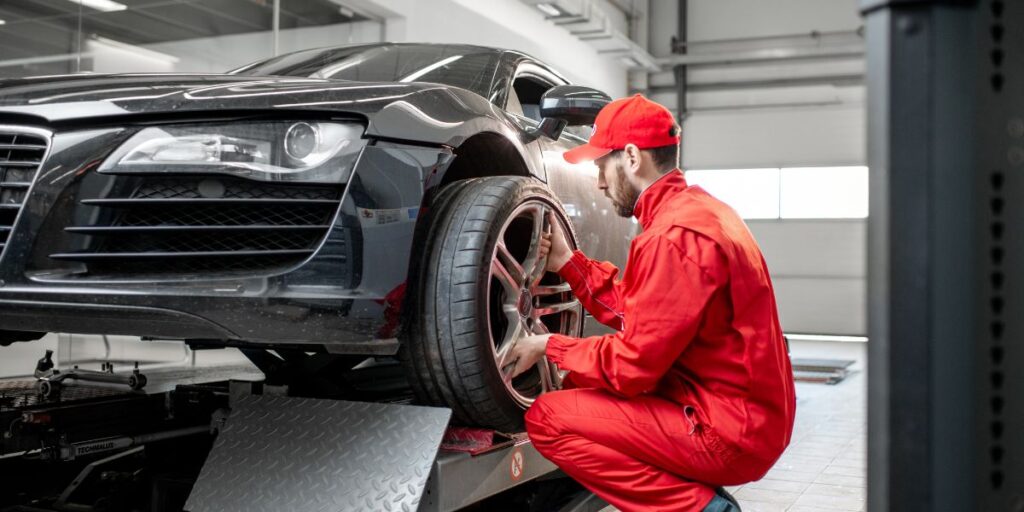
Frequently Asked Questions About Tire Rotation & Cost
Is tire rotation expensive?
The cost of a tire rotation may be in the same price range as – or even cheaper than – an oil change for your vehicle. Be sure to contact multiple auto service centers in your area to compare quotes.
Why do tires need to be rotated?
Tires in different positions on your vehicle wear down at different rates. Rotating them causes even wear on all tires, prevents premature wear and tear, and extends tire lifespan.
Will anything bad happen if tires aren’t rotated?
If you neglect tire rotation, your tires will wear out faster, negatively impact gas mileage, cause vehicle handling problems, and can even cause dangerous tire blowouts.
How often should I rotate my vehicle’s tires?
Most manufacturers recommend rotating your tires every 5,000 to 8,000 miles, but you should consult your owner’s manual for the manufacturer’s recommendations. If you notice uneven tread wear or vibration in the steering wheel, those are signs your tires may need rotation sooner.
Should I have the tires rotated after buying a used car?
Whether the former owner kept up with maintenance can be a big question mark when you buy a used car. A quick tire rotation can save you from premature tire replacement and give you peace of mind that you won’t have problems because of worn tires.
How long does a tire rotation take?
A tire rotation usually takes around 15-20 minutes, but the exact time depends on the vehicle and the specific procedures involved. It’s typically a quick service that should be part of your regular maintenance schedule.
What’s the difference between rotating and balancing tires?
Rotating tires moves them to different positions on the vehicle while balancing involves adding weights to the wheel to ensure it spins smoothly without vibrations. Both services are intended to give you a smoother, safer ride and longer tire life.
Do I need an alignment with tire rotation?
A wheel alignment adjusts the angles of your tires to keep them properly aligned and isn’t necessary every time you have a tire rotation. Signs that you need an alignment are when the vehicle pulls to one side, the steering wheel is crooked when driving straight, the steering wheel feels loose or unresponsive, the steering wheel is shaking or vibrating, or your tires are wearing unevenly or rapidly.
Is it hard to rotate tires myself?
If you enjoy working on your vehicle and have the proper tools, a DIY tire rotation is one of the easier types of maintenance. But if you’re nervous about making sure rotated tires are properly secured, you may want to have the job done professionally.
We’re the Experts in Tires and More
At Country Tire, we understand that rotating your vehicle’s tires is a simple but important part of regular vehicle maintenance. Ready to give your tires the care they deserve? Use the hassle-free form on our website to schedule an appointment at one of our three Country Tire Automotive locations. Our experienced technicians will make sure your tires are rotated correctly to keep your vehicle running smoothly and safely on our Midwest roads.
